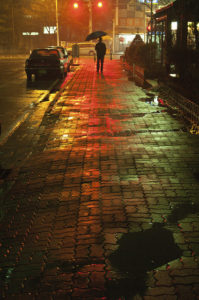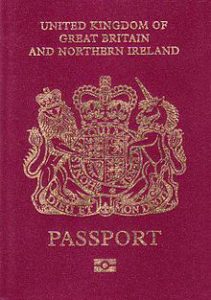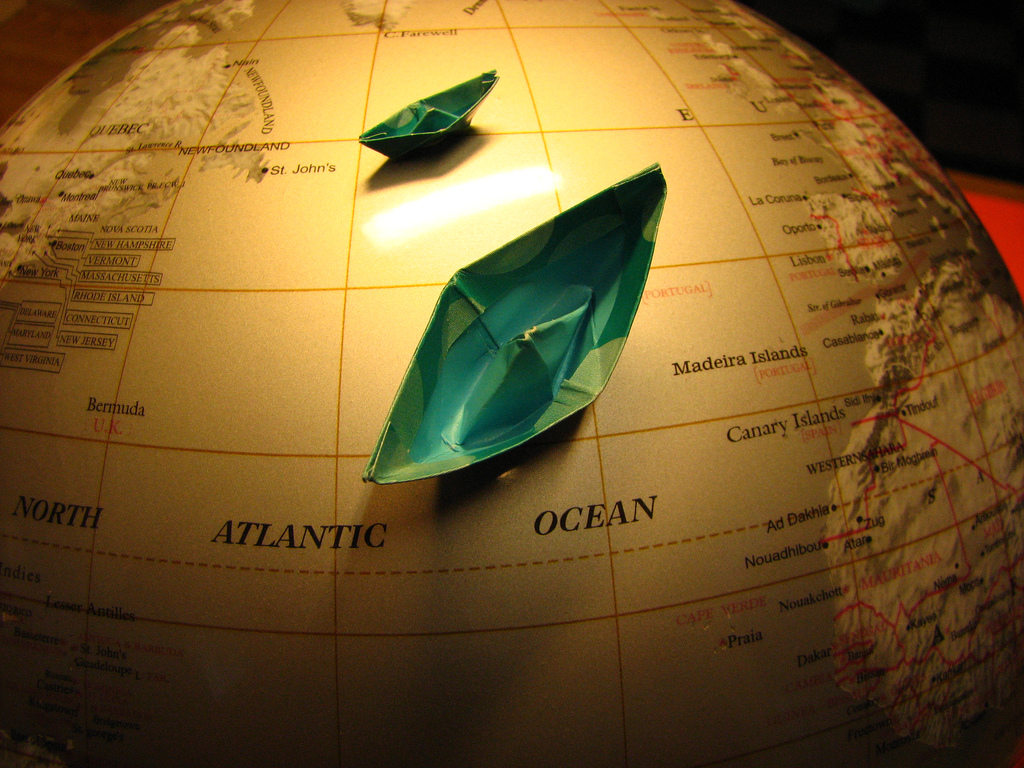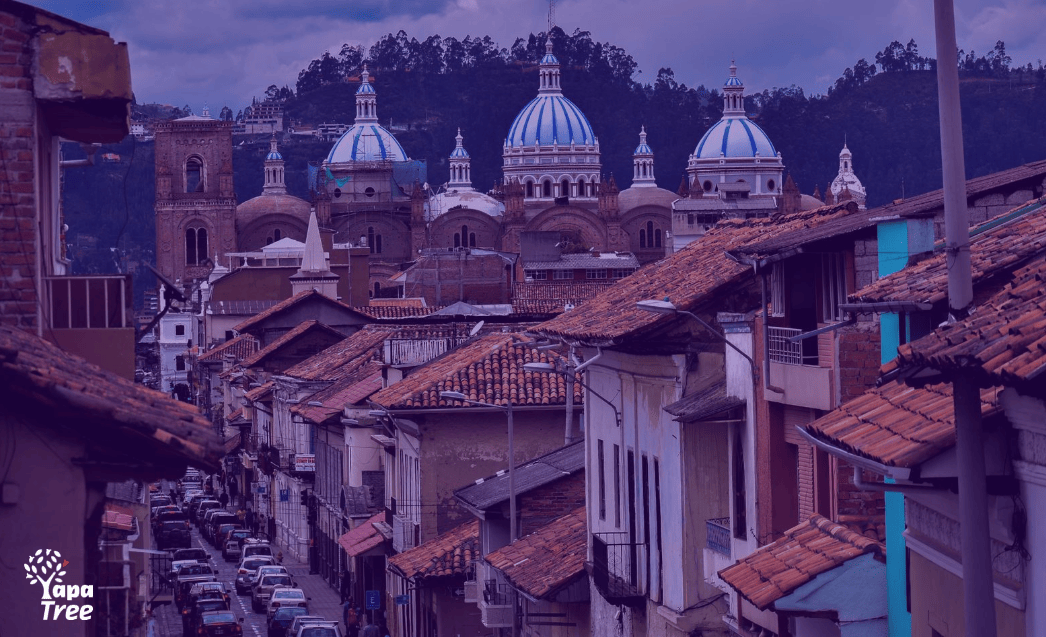Photo Credit: fdecomite.
If there’s one thing I’ve learned from traveling, it’s that even the best-laid plans go oft awry. Whenever I hit the road for any length of time, there are always a few items in my bag that I hope I never need, but they’re there if I do. Here’s how to be prepared for anything while traveling.
1. Read Before You Go.
There’s nothing more important than knowing about the place you’re visiting! Head to a library or bookstore or an online store and get a few books on what life is like where you’re going. If someone came into your home and ignored all your rules, you would be upset — the same guidelines are applicable when you travel overseas. Knowing basic etiquette can help you avoid any misunderstandings and leave a favorable impression.
2. Carry a Small First-Aid Kit.
Tylenol, stomach illness medicine, eye drops, Band-Aids, scissors, hydrocortisone cream or spray, anti-bacterial ointment, and a small supply of doctor-approved antibiotics can really come in handy in a pinch. Even though I can usually find a pharmacy when I need one, it’s still helpful to have these small items handy in case of an emergency.
3. Pack a Mini Flashlight.
You probably have a flashlight app on your smartphone, but there are plenty of times when an old-fashioned manual flashlight is invaluable. You may accidentally stay on a hiking trail past sunset, the electricity may go out, and there’s never a good time to be flashy with a smartphone. I carry a small LED flashlight in a sheath that can survive drops and scrapes.
4. Bring an Umbrella.

Umbrellas do add a small amount of weight to a bag, and many travelers don’t pack them for this reason, assuming they can just buy them if they need to. On more than one occasion, I have found myself thankful for my mini umbrella, especially in the Andes, where it’s sunny one minute and rainy the next. Not to mention that it doubles as the hat you forgot to wear when the sun comes out again.
5. Take Multi-Use Gear.
Packing multi-use gear ensures you can adjust to changing conditions and reduces the amount of clothing you need to take. I like flexible pants, walking shoes or sandals that look nice enough for an evening out, and brightly-colored t-shirts that look great on their own or layered under long-sleeve shirts or sweaters. The mini-umbrella mentioned above is another great example of multi-use gear.
6. Learn Basic Phrases.
Locals don’t expect you to be an expert in their language, but knowing how to say “hello,” “goodbye,” and “thank you” goes a long way. Learning key phrases will make interactions easier and will help you tremendously when you bargain for goods, order food, or get lost. The latest Android smartphone version of Google Translate is handy because it works on and offline. No smartphone? Pick up a pocket language guide from Lonely Planet — there’s one for about every language spoken.

7. Carry Cash.
A lot of countries now accept credit cards with chips, so if your credit card has only a magnetic strip (which a lot of US cards still do), there might be a chance your card won’t be accepted. Also, depending on the country you’re visiting and what you’re buying, there are often discounts for cash (usually on big ticket items), so it can actually benefit you to use cash.
8. Have Back-Up Cards.
I always have one back-up credit card and one bank card with me in case of emergencies. You never know when one bank might decide to lock your account for suspicious activity without telling you (yes, that has happened to me), or when you might get robbed. If your bank information gets stolen, most banks have to deactivate that particular card, so if you have a back up, you still have access to money.
9. Keep an Emergency Cash Stash.
You never know when emergency cash might come in handy, even though ATMs are almost everywhere nowadays. Sometimes your ATM card just doesn’t work or, if you’re in a tiny town, there may just be one ATM and it could be out of money. I recommend keeping a stash of a few hundred dollars (USD) for emergencies. Leave the money locked up in a hotel safe or other secure location — don’t carry it with you. It will come in handy if you get robbed or lose your wallet.
10. Make Extra Copies.

This is so simple but so important! Keeping copies of your documents can save you time and energy during an emergency, especially if you lose your originals. If you get robbed or lose your passport, having copies ready for officials can make filing police reports and obtaining new documents much easier. It’s also helpful for daily transactions, such as purchasing bus tickets, which often requires a passport number. Even if you have your number memorized, plenty of stores want cashiers to look at your passport, too. Keep a copy of your passport, your health/travel insurance paperwork, and your bank cards handy.
11. Know What to do When You Lose Your Passport.
What do you do when you lose your passport? Losing your passport can be scary, especially if you are planning on traveling soon. Luckily for American travelers, the U.S. Department of State outlines how to obtain a new passport overseas on its website, but the main points are as follows:
Go fill out a police report for your lost passport.
Go to the State Department website, print out some forms. Fill them out.
Take the forms to the US Embassy or Consulate when they open.
Wait in line.
Wait in line some more.
Show the official your police report, forms, proof of your upcoming travel plans, and a passport-sized photo.
Wait longer.
Pay the fee.
Go eat lunch, come back later.
Wait some more.
Get your new temporary passport that will need to be replaced upon returning home.
12. Carry a List of Emergency Contacts.
If something happens to you, having a list of emergency numbers on you will help medical professionals know who to contact. Also keep a list of any allergies you have with you so if you need treatment and can’t answer questions, doctors know what you’re allergic to. These lists are especially important if you’re traveling on your own. Have at least two copies of your lists: one with you and one locked up where you’re staying. Did I mention back ups are important?
13. Have Travel Insurance.
The ultimate form of preparedness, having travel insurance can be a blessing when you have to go to the hospital because you popped an ear drum scuba diving, or you get sick on the road, or break a leg. Chances are nothing is going to happen to you while traveling but, if something does, you’re going to want to have insurance, especially if you’re planning on taking a lengthy trip.
Do you have suggestions for being prepared when traveling? Please share your comments below!





















4 Responses
I worked for years as a PT for the military. Wound care was my CE specialty. I still….carry a couple tampons in my back pack for gunshot or puncture wounds! Tampons will expand and put pressure on a seriously bleeding would, and leave your hands free for other things!
I do hope those tampons work for you…
I DO hope I never have to use one….for that!
I always carry chap stick or Vaseline. Safety pins is another good item.